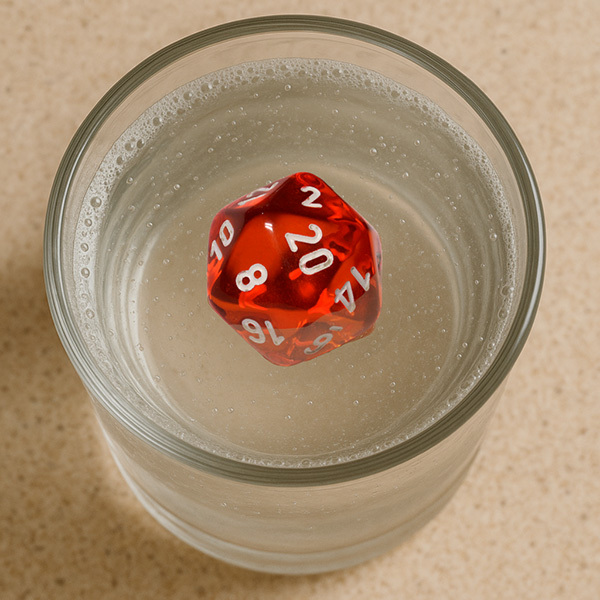Behind The Roll: The Truth About Game Dice Balance
If you’ve ever accused a die of being “cursed” after a string of bad rolls, you are not alone. Dice superstitions are a time-honored tradition at every game table. But sometimes, it’s not just bad luck—your game dice might actually be unbalanced. In this article, we’ll explore what dice balance really means, how it affects gameplay, and whether all game dice are truly created equal.
What Is Dice Balance?
Dice balance refers to how evenly the weight and geometry of a die are distributed so that every face has the same chance of landing face-up. In a perfectly balanced die, each number (or symbol) is equally likely to appear. For example, a standard six-sided die (d6) should give you a 1-in-6 chance for each face.
This balance is crucial in games that depend on fairness and unpredictability. An unbalanced die can subtly—or dramatically—tilt the odds, leading to frustrating outcomes or giving certain players an unfair advantage, even if no one realizes it.
How Are Game Dice Made?
Most mass-produced game dice are made using plastic injection molding. Molten plastic is poured into molds, then the dice are tumbled or polished, painted, and packaged. While this process is quick and cost-effective, it’s not always precise.
Here are a few ways balance can be compromised during manufacturing:
- Air bubbles: Small pockets trapped inside the die can shift its center of gravity.
- Uneven paint: Filling the numbers with too much or too little paint can slightly alter weight distribution.
- Imperfect molds: If the mold is worn or misaligned, the die may be misshapen or asymmetrical.
- Off-center numbering: Engraved numbers or spots that aren’t positioned correctly can affect weight balance.
Manufacturers that mass-produce colorful or decorative game dice often prioritize visual appeal and affordability over strict precision. That doesn’t mean those dice are bad—but it does mean they might not roll as fairly as you'd think.
How to Tell If Your Dice Are Unbalanced
Wondering if your dice are a little… suspicious? Here are some signs that your game dice might be unbalanced:
- Certain numbers seem to come up noticeably more often over many rolls.
- The die has visible flaws like bubbles, chips, or uneven faces.
- Your dice regularly betray you at the worst possible moments (okay, that one might be psychological).
Try the Saltwater Test
You can test a die’s balance at home using a saltwater float test:
- Fill a clear glass with water and add enough salt to make your die float (roughly 1/4 cup of salt per cup of water, stirred thoroughly).
- Place the die in the water and give it a gentle spin.
- Let it settle and observe which face ends up facing upward.
- Repeat several times—if the same number keeps floating to the top, the die may be unbalanced.

This test isn’t perfect—it won’t catch minor imbalances, and small sample sizes can give misleading results—but it can help toward determining if the center of gravity is in the middle of the die where it belongs. And it’s also just a fun way to investigate your dice!
Do You Need Precision Game Dice?
Precision dice are manufactured with far greater attention to uniformity and fairness. Casino dice, for example, are crafted to exact specifications with sharp edges, perfect symmetry, and no added paint in the pips (to avoid weight inconsistencies).
You can also find precision dice made for tabletop gaming. These dice are often:
- Molded without post-processing that could round edges or deform faces
- Laser-etched instead of painted
- Tested for balance
So, do you need precision game dice? For most casual players, probably not. The small deviations in balance from mass-market dice are unlikely to significantly affect the outcome of a campaign or board game night. But if you play competitively, want tighter control over game mechanics, or just appreciate high-quality components, precision dice may be worth considering.
The Psychology of Dice: Luck, Bias, and Superstition
Humans are pattern-seeking creatures, and dice are random by design. It’s easy to attribute a bad streak to a “cursed” d20 or believe a certain d6 is your lucky charm. While most of this is just fun table talk, it does point to an important truth: when outcomes feel unfair, it can impact the enjoyment of the game.
Knowing your dice are balanced—even just reasonably so—can increase trust in the game’s mechanics and keep the focus where it belongs: on strategy, storytelling, and fun.
Final Thoughts
Not all game dice are created equal, and that’s okay. A little imbalance isn’t going to ruin your dungeon crawl or throw your board game night into chaos. But if you’re curious about your dice, it’s worth doing a float test or just keeping track of how they behave over time.
Recent Posts
-
Klondike: The Classic Gambling Dice Game
A fast-paced gambling game of luck and risk, Klondike is suitable for any number of players—even lar …Jul 21st 2025 -
Lock In: An Exclusive Press-Your-Luck Dice Game
Lock In is a unique dice game that's quick to learn and quick to play, works great with 2 or more pl …Jun 2nd 2025 -
Drop Zone and Beyond: Three Thrilling Dice Games
Looking for a fast-paced dice game that's easy to learn, fun for groups, and filled with suspense? D …Apr 30th 2025




